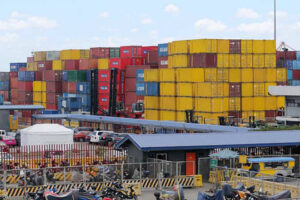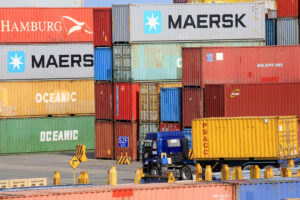By Luisa Maria Jacinta C. Jocson, Senior Reporter
TRADE WARS and geopolitical risks could threaten Asian economies’ credit rating, including the Philippines, S&P Global Ratings said.
“Tariffs and wars pose increased risks to Asia-Pacific sovereign ratings,” it said in a report.
“International trade frictions and military conflicts grow as threats to Asia-Pacific sovereign creditworthiness in 2025.”
Asia-Pacific sovereigns had been seeing a “positive momentum” but now face considerable risks, it said.
“These risks affect sovereign credit metrics most directly through the external and fiscal channels.”
“Economies that report current account deficits or where surpluses are small — including India, Indonesia, and the Philippines — may experience slipping external support for their sovereign ratings.”
S&P said that most of the sovereign ratings in the region are investment grade and range between “BBB” and “BBB+.”
Currently, three out of 21 sovereign outlooks remain positive, namely, the Philippines, India and Mongolia.
In November, the debt watcher affirmed its “BBB+” long-term credit rating for the Philippines, which is a notch below the “A” level grade targeted by the government. It also kept its “A-2” short-term rating for the country.
S&P Global had raised its rating outlook to “positive” from “stable.” A positive outlook means the Philippines’ credit rating could be raised over the next two years if improvements are sustained.
The credit rater said that restrictive tariff policies continue to weigh on economies in the region.
“It is uncertain whether the Trump administration could conclude trade negotiations with many countries by the end of July,” it said.
The Philippines was slapped with a 20% reciprocal tariff by the United States, higher than the 17% previously proposed. The government has said it is seeking to negotiate better terms with the US.
“S&P Global Ratings believes there is a high degree of unpredictability around policy implementation by the US administration and possible responses — specifically with regard to tariffs — and the potential effect on economies, supply chains, and credit conditions around the world.”
It also cited the persistence of geopolitical conflict as a key risk, citing the South China Sea, Taiwan Straits, and North Korea.
“However, recent events show that an increase in tension can happen. And, if not carefully handled, errors in judgment could lead to escalations that no party intended.”
These escalating geopolitical tensions could affect prices, as Asia-Pacific economies may have to pay more for energy and related imports, it said.
The Asia-Pacific region could also face further fiscal deteriorations if these risks materialize, S&P said.
“Government finances will weaken as economic performances falter. Government revenue will be dragged down, especially where exporters are important taxpayers, such as in Korea, Taiwan, and Japan.”
Analysts likewise said that these global uncertainties could be a hindrance to the Philippines’ goal of securing an “A” rating.
“These global and regional risks could hinder the Philippines’ march toward an ‘A’ rating, especially if they amplify external or fiscal weaknesses,” Leonardo A. Lanzona, an economics professor at the Ateneo de Manila University, said in an e-mail.
The government is targeting to reach “A”rating status by 2028. The Philippines holds an “A” rating with Japan-based Rating and Investment Information, Inc. (R&I) and Japan Credit Rating Agency (JCR).
However, it has yet to secure a top investment rating from the big three debt watchers. Aside from its “BBB+” rating from S&P Global Ratings, it also holds a “BBB” rating from Fitch Ratings and “Baa2” from Moody’s Ratings.
“In particular, the Philippines traditionally runs current account deficits, meaning it imports more than it exports, and relies on remittances, BPO (business process outsourcing) revenues, and foreign capital to finance that gap,” Mr. Lanzona said, but noted these inflows may become volatile amid global uncertainty.
However, Mr. Lanzona said that if the government can manage inflation, exercise fiscal discipline and deepen capital markets, meeting the “A” rating goal remains within reach.


















